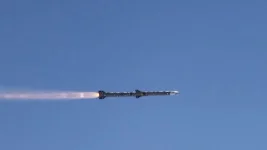- Views: 1K
- Replies: 15

In the dynamic realm of geopolitics and military technology, South Asia faces a potential shift in the balance of power. Reports indicate that Pakistan is close to acquiring the J-35A, a fifth-generation stealth fighter from China, raising concerns for India.
This development has brought India's Advanced Medium Combat Aircraft (AMCA) program into sharp focus, prompting discussions about potential strategic partnerships to accelerate its development.
With the United States still withholding approval for the sale of F-35A jets to Taiwan, could an invitation for Taiwan to join India's AMCA project be a strategic masterstroke?
Pakistan's pursuit of the J-35A is not merely about upgrading its military; it's a strategic move with regional implications. The J-35A, designed for both air superiority and strike missions, is expected to significantly enhance Pakistan's air force capabilities.
This acquisition could provide Pakistan with a temporary technological edge, as India's AMCA is still under development and not expected to be operational until the mid-2030s.
India's AMCA project is crucial for the nation's ambition to achieve strategic autonomy in defence. The program aims to develop a fifth-generation stealth fighter with advanced avionics, surpassing existing fourth-generation fighters and rivaling global standards.
However, the AMCA has faced delays, highlighting the urgency to accelerate its development or explore strategic collaborations.
Taiwan, with its impressive technological capabilities, particularly in electronics and semiconductors vital for modern fighter jets, emerges as a potential partner. A collaborative approach could lead to technology sharing, potentially expediting the AMCA's development and enhancing its capabilities.
Inviting Taiwan to join the AMCA project would be a bold geopolitical statement, aligning India with another nation facing similar challenges from China. This could strengthen India's position in international relations, particularly with democracies in Asia, and potentially attract more attention and support from Western nations.
Furthermore, with Pakistan and China deepening their military ties, India extending an invitation to Taiwan would be a strategic counter-move, potentially creating a new axis of cooperation in defence technology within the region.
A joint project with Taiwan could act as a deterrent against Chinese aggression in both South Asia and East Asia, given Taiwan's strategic importance in the Taiwan Strait.
However, this strategic move is not without potential challenges. India's invitation to Taiwan could complicate its relations with China, which considers Taiwan a part of its territory.
Careful diplomatic navigation would be required to avoid escalating tensions. Additionally, sharing sensitive technology always carries security risks. Both nations would need to establish stringent protocols for technology exchange.
The US's stance on the F-35A sale to Taiwan reflects its cautious approach to regional stability. India would need to consider how this move might affect its relations with the US, which has its own strategic interests in the Indo-Pacific region.
Despite these challenges, the potential benefits of an India-Taiwan partnership on the AMCA project are significant. It could accelerate the development of a crucial defence platform, enhance technological capabilities, and strengthen geopolitical ties in the face of shared challenges.
As India strives for self-reliance in defence and a greater role in the Indo-Pacific, collaboration with Taiwan on the AMCA could be a strategic game-changer.

